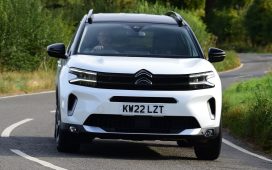Dudley Council leader Patrick Harley explained that the authority “needs to make as much revenue as possible”, adding: “No one is going to die from having to pay £1.50 to park.”
Some councils already charging for parking are considering imposing an additional charge on larger vehicles.
Among them is Haringey Council, which is proposing to add a supplement to resident parking permits of as much as £87 per year for a car longer than 4.5 metres.
Likewise, Bristol City Council is considering charging heavier and more polluting cars extra fees to park in the city – a policy already adopted by London’s Islington Council, which charges heavier cars more for a parking permit. Despite no tailpipe emissions, electric vehicles aren’t immune from this charge, because their brake and tyre particles are polluting, said the council.
Bristol City Council could also reduce the number of on-street parking spaces – a plan already being enacted by London’s Lambeth Council, whose Kerbside Strategy includes a 25% reduction in spaces in favour of EV charging points, in conjunction with emissions-based pricing and a diesel surcharge.
Just how bad is it?
£6.65: Most expensive average daytime hourly parking rate, charged by Bracknell Forest Council.
145%: Increase of the average daytime parking rate in Sandwell, West Midlands, between 2022 and 2024 (40p to 98p).
£300,000: Cost to councils in lost parking revenue per week by reducing car parking spaces, according to parking warden unions.









